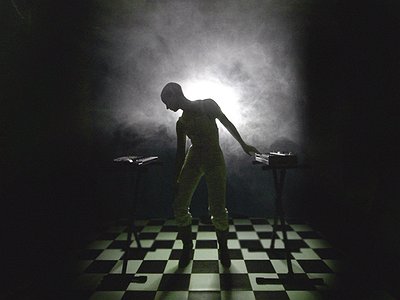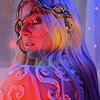Part 2
Could you take us through a day in your life, from a possible morning routine through to your work? Do you have a fixed schedule? How do music and other aspects of your life feed back into each other - do you separate them or instead try to make them blend seamlessly?
My morning routine is really the only fixed element of my schedule. Each day usually starts around 7:00 AM with lemon water and stream-of-consciousness writing for about thirty minutes. I then have tea and breakfast, followed by meditation. I work for a woman doing gardening a couple days a week and also help run an electronic music collective called Hyasynth House. If I’m not in someone’s garden, answering emails or planning events, then I like to spend time being active (going for a walk with a friend or dancing) before I make music. These aspects of my life directly influence by work. I’ve attempted to contain them previously, but really they all inform my creative process, and thus, are part of it.
Could you describe your creative process on the basis of a piece or album that's particularly dear to you, please? Where did the ideas come from, how were they transformed in your mind, what did you start with and how do you refine these beginnings into the finished work of art?
When I make music, I like to think about creating experiences. I wasn’t really sure what “Feminine Intuition” was or how it would turn out when I was first inspired to create it. I just wanted to reflect on how feminine intuition feels. I asked myself, “What does intuition feel like in my body? If intuition were an environment or physical place, what characteristics would it have? What sounds can I use to represent the experience of feeling connected to my intuition?” I allowed these questions to guide me in choosing the sound and composition elements of the song. While recording it live in my studio, I didn’t make note of anything I was doing. I turned my mind off and let it happen. The edits and production decisions I made later were in an effort to showcase the original idea.
There are many descriptions of the ideal state of mind for being creative. What is it like for you? What supports this ideal state of mind and what are distractions? Are there strategies to enter into this state more easily?
For me, the ideal state of mind for being creative is being fully present. This means being relaxed, comfortable, and free of expectation. My experience of making music is that it’s an intuitive exercise. The less I’m thinking, the more available I am to receive ideas and allow myself to be carried by the flow of creativity. Meditating, movement, and creating a peaceful studio environment (with specific lighting and smells) are all helpful to enter into the state that I find ideal for creating.
How is playing live and writing music in the studio connected? What do you achieve and draw from each experience personally? How do you see the relationship between improvisation and composition in this regard?
Oftentimes having a date locked in for a live performance inspires me to write and record new material. I also love the challenge of reimagining a piece for a live performance. I’m able to see my music from a different point of view when I play it live, and it takes on a new form. I come up with new ideas when I’m touring, which I try out during performances and then record when I’m back home. I really enjoy blurring the line between improvisation and composition. Who says they can’t be one and the same?
How do you see the relationship between the 'sound' aspects of music and the 'composition' aspects? How do you work with sound and timbre to meet certain production ideas and in which way can certain sounds already take on compositional qualities?
Each sound has a life of its own. I feel like my job as a composer is to direct the sound and explore how it wants to take shape in the moment. Our minds like to assume a certain compositional context for a given sound, and I think that gets in the way of being creative. I like to really engage with the sound and investigate different compositional ideas before I choose a framework that exhibits the sound and the feeling it carries in the most effective, honest way.
Our sense of hearing shares intriguing connections to other senses. From your experience, what are some of the most inspiring overlaps between different senses - and what do they tell us about the way our senses work? What happens to sound at its outermost borders?
I’m keenly interested in how my sense of hearing relates to the sixth sense, or the intuitive sense, which lies beyond normal perception. There’s a lot that I sense and process throughout the day that I can’t verbally express, and music is a means for me to witness that which evades explanation. Everything has a frequency. Sound is a thought. Sound is a shift in the temperature outside. Sound is eye contact. Sound is a dream I had last night.
Art can be a purpose in its own right, but it can also directly feed back into everyday life, take on a social and political role and lead to more engagement. Can you describe your approach to art and being an artist?
My approach to being an artist is finding avenues to know and heal myself and connect with my spiritual center, or healer within. The things I make are very personal, and I hope that in sharing myself with others, that they will be inspired to know themselves more intimately. Self-awareness is the most radical form of empowerment I can imagine, and I think we could all engage with each other more humanely if we were devoted to knowing, accepting, and caring for ourselves.
It is remarkable, in a way, that we have arrived in the 21st century with the basic concept of music still intact. Do you have a vision of music, an idea of what music could be beyond its current form?
In the future, technology will continue to break down the boundaries between artists and the tools that we use. Music will be part of us, maybe even literally






